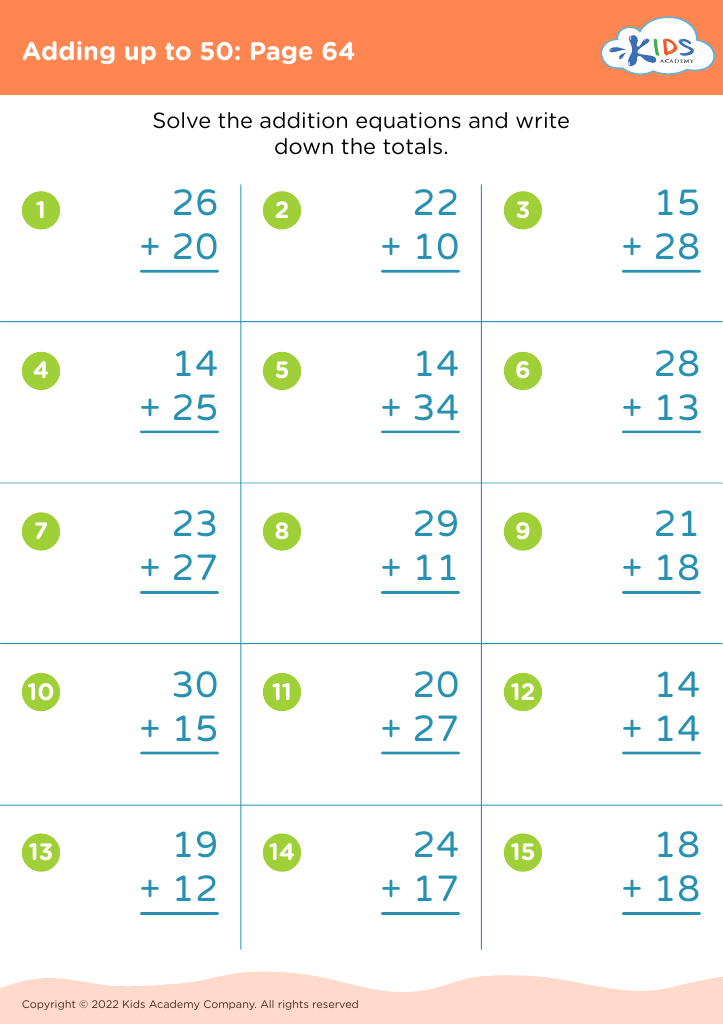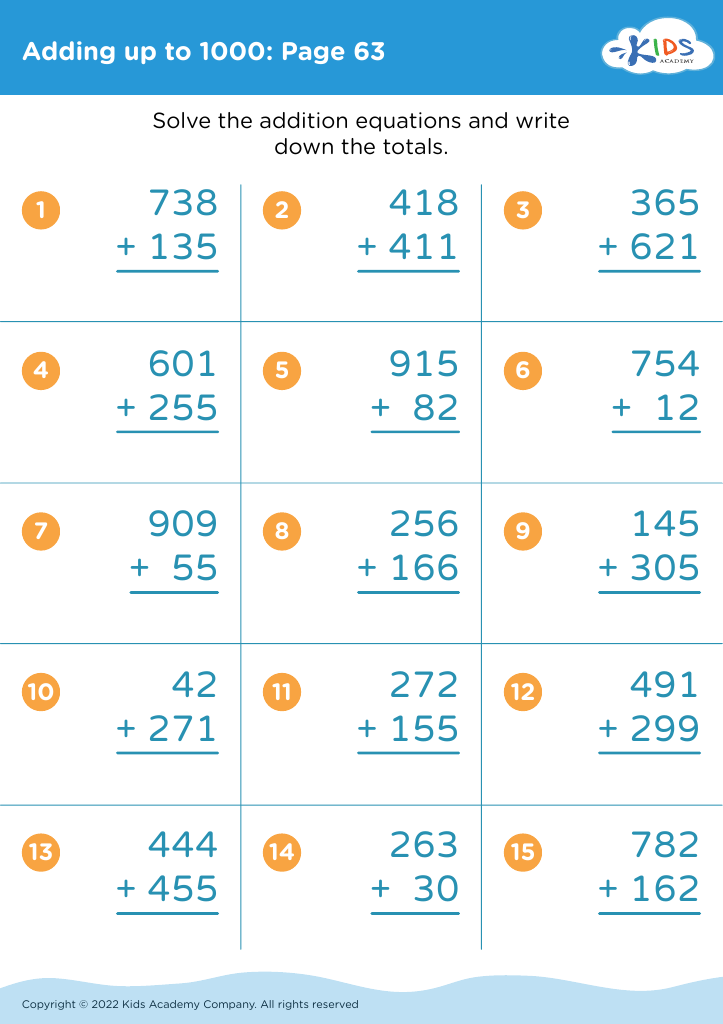Comparing numbers Addition Worksheets for 7-Year-Olds
4 filtered results
-
From - To
Welcome to our collection of Comparing Numbers Addition Worksheets designed specifically for 7-year-olds! These engaging and interactive worksheets help young learners understand the concept of comparing numbers while also reinforcing their addition skills. As children work through various exercises, they’ll develop critical thinking and problem-solving abilities, all while enhancing their number sense. Our worksheets feature vibrant visuals and age-appropriate challenges that make learning fun and enjoyable. Perfect for home or classroom use, these resources support early math education by enabling children to confidently compare numbers and perform addition in a seamless manner. Start exploring and watch your child's mathematical confidence grow!
Understanding how to compare numbers and perform addition is crucial for 7-year-olds as they build the foundation for essential mathematical skills. First, comparing numbers enhances critical thinking and problem-solving abilities. Children learn to recognize differences and similarities between values, fostering analytical skills that are invaluable in daily life. For example, when they compare the amount of apples in two baskets, they begin to understand volume, quantity, and simple mathematics in a practical context.
Moreover, mastering addition lays the groundwork for mastering more complex math concepts, such as subtraction, multiplication, and division. These skills extend beyond just numbers and can transfer to other subjects, enhancing overall academic performance. When children can comfortably compare numbers and perform addition, they develop confidence in their mathematical abilities, encouraging a positive attitude towards learning.
Finally, being proficient at these skills supports parents and teachers in assessing students’ understanding and progress in math, allowing for tailored instructional strategies. Ultimately, by investing time in these early mathematical concepts, parents and teachers lay a strong, adaptable foundation that benefits children long into their educational journeys.




















